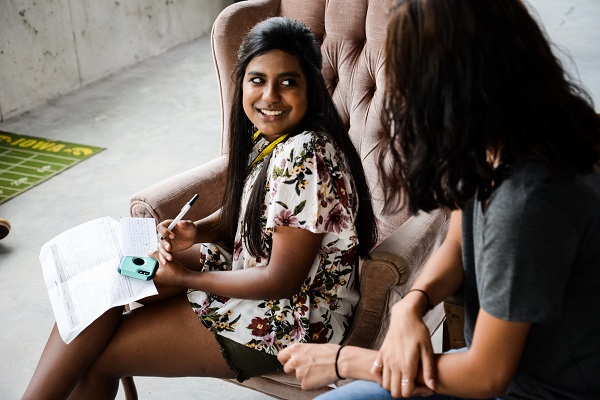As a leader in professional learning, the Belin-Blank Center at the University of Iowa is here to help you earn your Talented and Gifted (TAG) Endorsement! Here are just a few reasons to chose Iowa for your TAG-endorsement needs:
- 100% online curriculum
- Flexible practicum experience
- Emphasis on acceleration, mental health, rural and small schools, and twice-exceptionality
- Ability to transfer up to 6 s.h. of coursework from other institutions
- Financial assistance available (including needs-based stipends and workshop vouchers)
Are you ready to get started this summer? Here are our Summer ‘24 offerings:
3 s.h. Courses
- BBC:4137: Introduction to Educating Gifted Students
- Study a variety of key concepts and issues related to advanced learners and appropriate programming for this unique population.
- May 20 – July 12
1 s.h. Workshops
- BBC:4111: Evaluation of Gifted Programs
- Course Description: Apply practical strategies and tools to conduct an effective, comprehensive evaluation of a program for advanced learners.
- Dates: June 3 – June 28
- BBC:4118: Meeting Emotional Needs of Talented Students
- Course Description: Focus on the unique emotional needs of talented students, including twice-exceptionality.
- Dates: July 8 – August 2
- BBC:4119: Meeting Social Needs of Talented Students
- Course Description: Focus on the unique social needs of talented students, including those who are twice-exceptional.
- Dates: May 20 – June 14
- BBC:4033: Talent Development in the Arts and Athletics: Models and Methods
- Course Description: Examine multiple general and domain specific talent development models relevant to arts and athletics.
- Dates: June 3 – June 28
- BBC:4035: Talent Development in the Arts and Athletics: Psychosocial Trials and Benefits
- Course Description: Understand and integrate the multiple psychosocial issues (both the challenges and benefits) experienced during varying stages of the talent development process.
- Dates: June 24 – July 19
Academic Credit Options (Restricted)
- BBC:4031: Belin-Blank Talent Development Fellowship (1 or 2 s.h.)
- Course Description: Belin-Blank Fellowship participants will survey key concepts, ideas, and issues concerning the development of talent (and its potential) in K-12 students.
- Participants can earn 1 or 2 s.h.; credit options will be discussed during the program
- Restricted to participants in the Belin-Blank Talent Development Fellowship
- BBC:4188: Practicum in Teaching and Curriculum Development: Gifted Education
- Course Description: Develop a supervised, independent culminating project that is practical in nature in preparation to work in programs and/or services for advanced learners.
- Restricted to undergraduates earning their TAG endorsement
- BBC:4189: Practicum in Gifted/Talented Education
- Course Description: Develop a supervised, independent culminating project that is practical in nature in preparation to work in programs and/or services for advanced learners.
- Dates: May 28 – July 8
- Restricted to nondegree students earning their TAG endorsement
- BBC:5080: Teacher Training for Advanced Placement Courses (2 s.h.)
- Course Description: Advanced Placement Summer Institute participants will explore the course framework, the AP exam, and the new resources for the chosen AP area.
- Dates: July 24 – August 2
- Restricted to participants in the Belin-Blank Center’s APSI Workshop
The cost of one semester hour of undergraduate credit is $376, and the cost of one semester hour of graduate credit is $626. Information on financial assistance is available upon request from educators@belinblank.org.
Ready to register? Follow the instructions here to enroll in an online course! Visit our website for more information on professional learning opportunities!










































